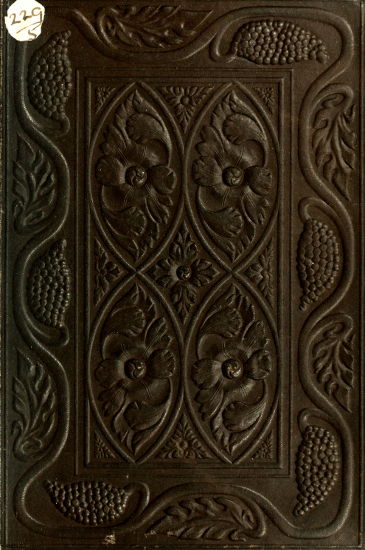FOOTPRINTS OF FORMER
MEN IN FAR CORNWALL

WILLIAM CLOWES AND SONS, LIMITED, LONDON AND BECCLES.
PREFACE
Hawker’s prose sketches appeared originallyas contributions to various periodicals, andin 1870 they were published for him in bookform by Mr. John Russell Smith, as “Footprintsof Former Men in Far Cornwall.” In 1893,eighteen years after his death, a new edition wasissued by Messrs. Blackwood, entitled “TheProse Works of Rev. R. S. Hawker,” containingtwo essays previously unpublished, “HumphreyVivian” and “Old Trevarten.” The late Mr.J. G. Godwin, who was Hawker’s friend andadviser in literary matters, edited the volume, andadded the bibliographical footnotes to the severalpapers. In the present edition it has beenthought appropriate to revert to Hawker’s ownmore picturesque title, and this is to be done alsoin the case of his poetical works, which willshortly be re-issued as “Cornish Ballads andother Poems.” The two books will thus formcompanion volumes. It is interesting to readthem concurrently, and to compare his treatmentof the same themes in prose and verse. An[vi]attempt has been made in the notes to assistsuch a comparison by indicating some of themore obvious parallels. In the prose, as in thepoems, there is the same deep and peculiar loveof symbol and miracle and superstition, but theprose further reveals, what might not be suspectedfrom the poems alone, that Hawker wasa humourist as much as a mystic.
Hawker won his literary reputation as aballad-writer, but his prose also deserves a sharein his fame. He has the gift of style. Like hishandwriting, which makes a manuscript of hisa thing of beauty in itself, it is bold and clear,free from prettiness or affectation, but with themassive grace of his native rocks, and madedistinctive by a characteristic touch of archaism.The rugged scenery of his abode had its influenceupon his work. He was a hewer of words, asDaniel Gumb was a hewer of stone, and hislanguage has the strength of rough masonrywrought in a broad and homely manner out ofsolid granite. The sea, and the great spaces oflonely moorland that surrounded him, gave to hiswork a sense of breadth and freedom. He isalways at his best in describing his own dearlyloved Cornwall, and in particular the wild coastby which all his

